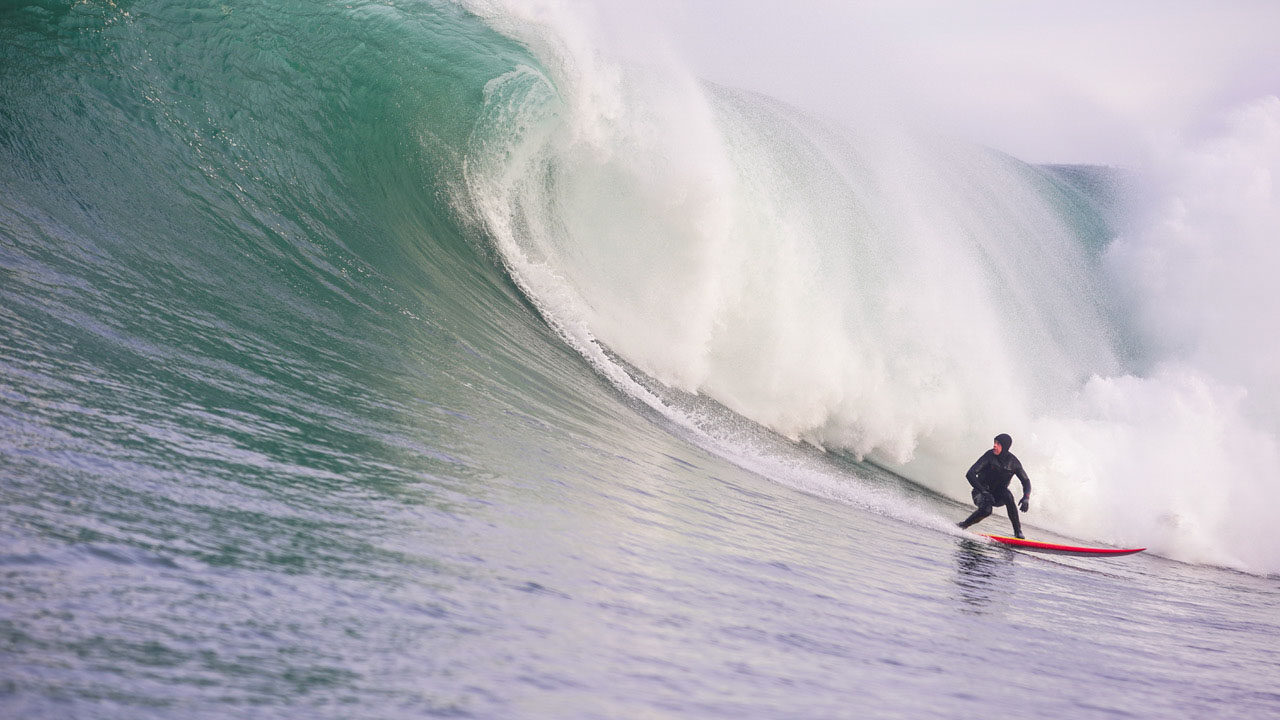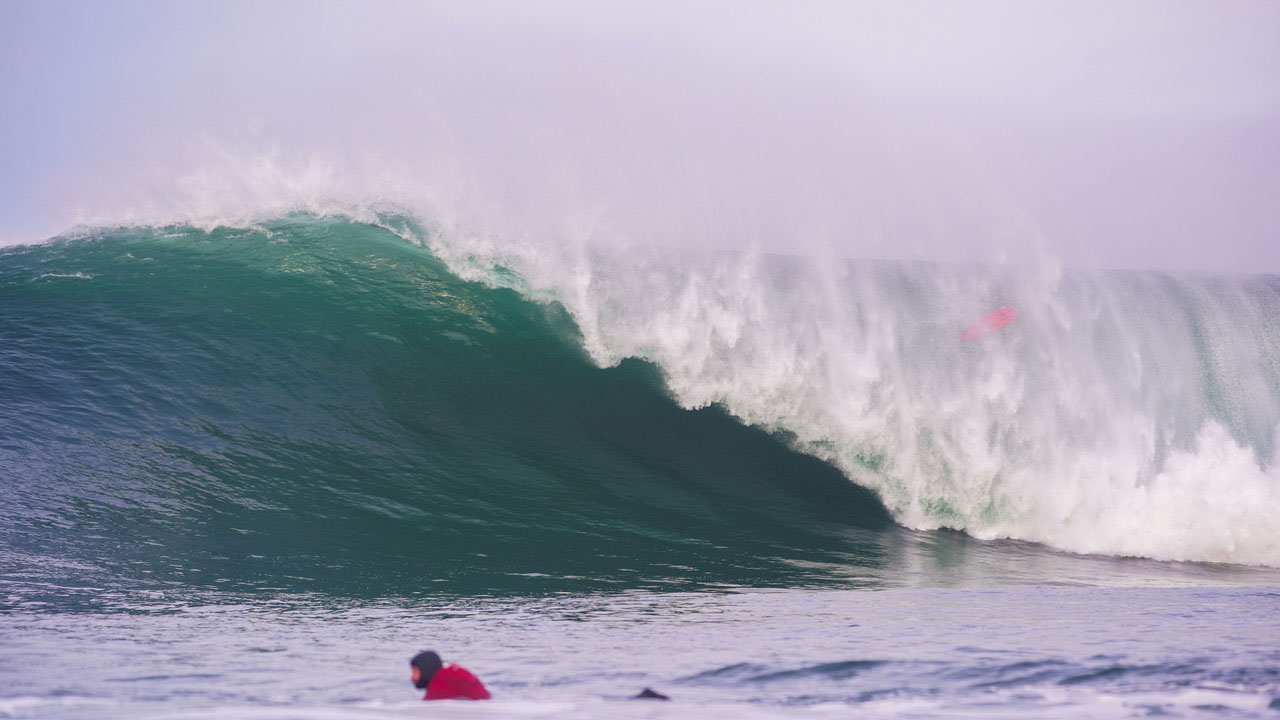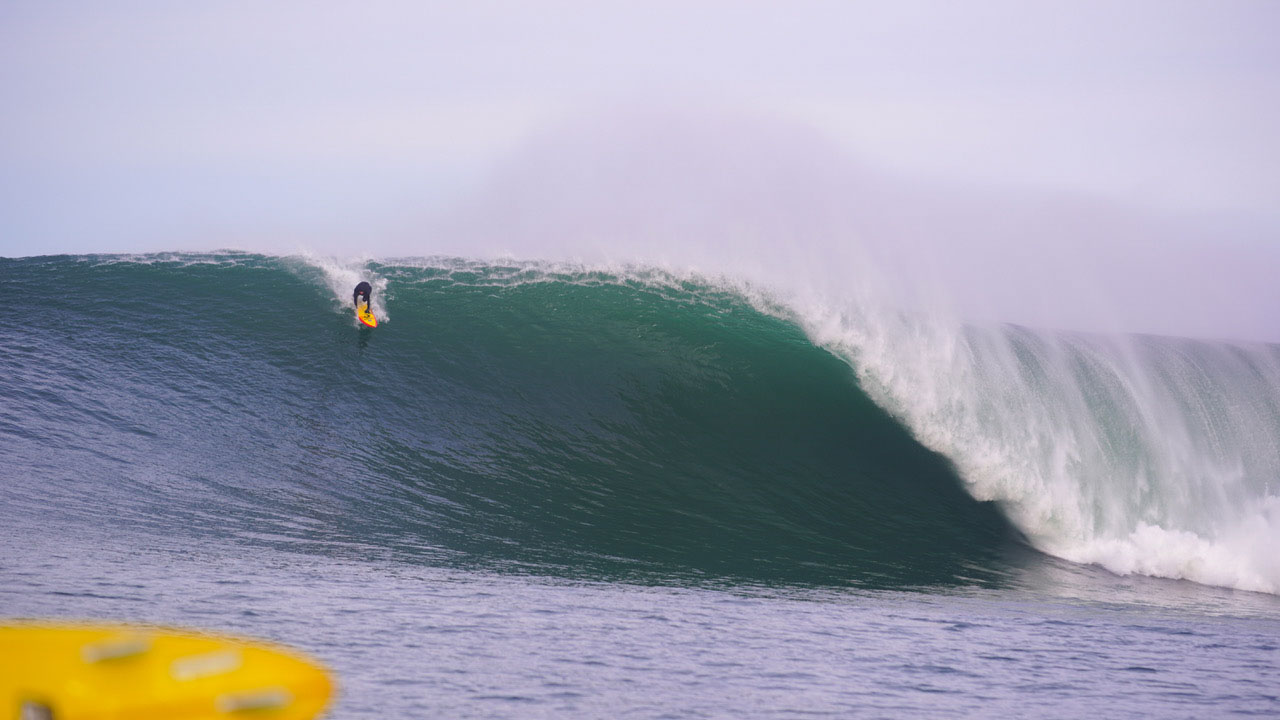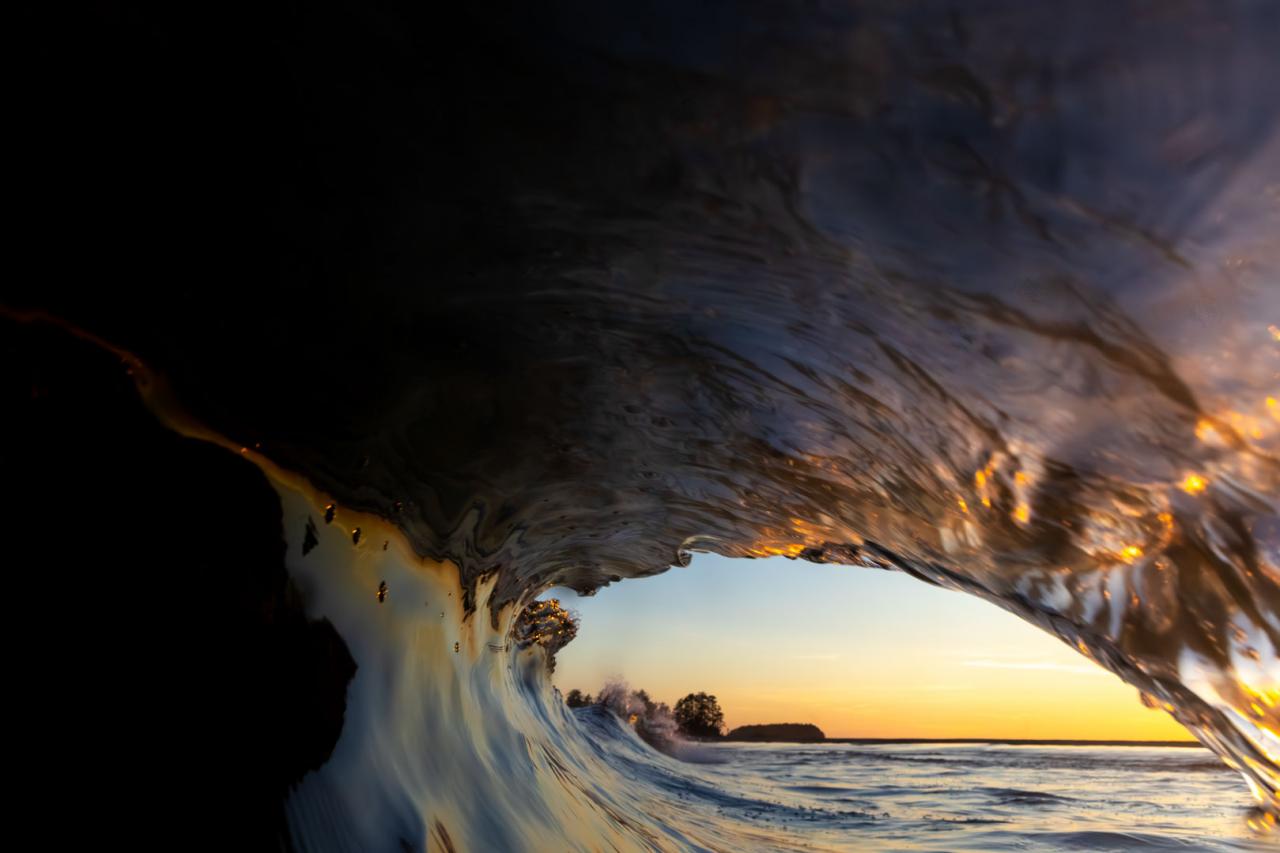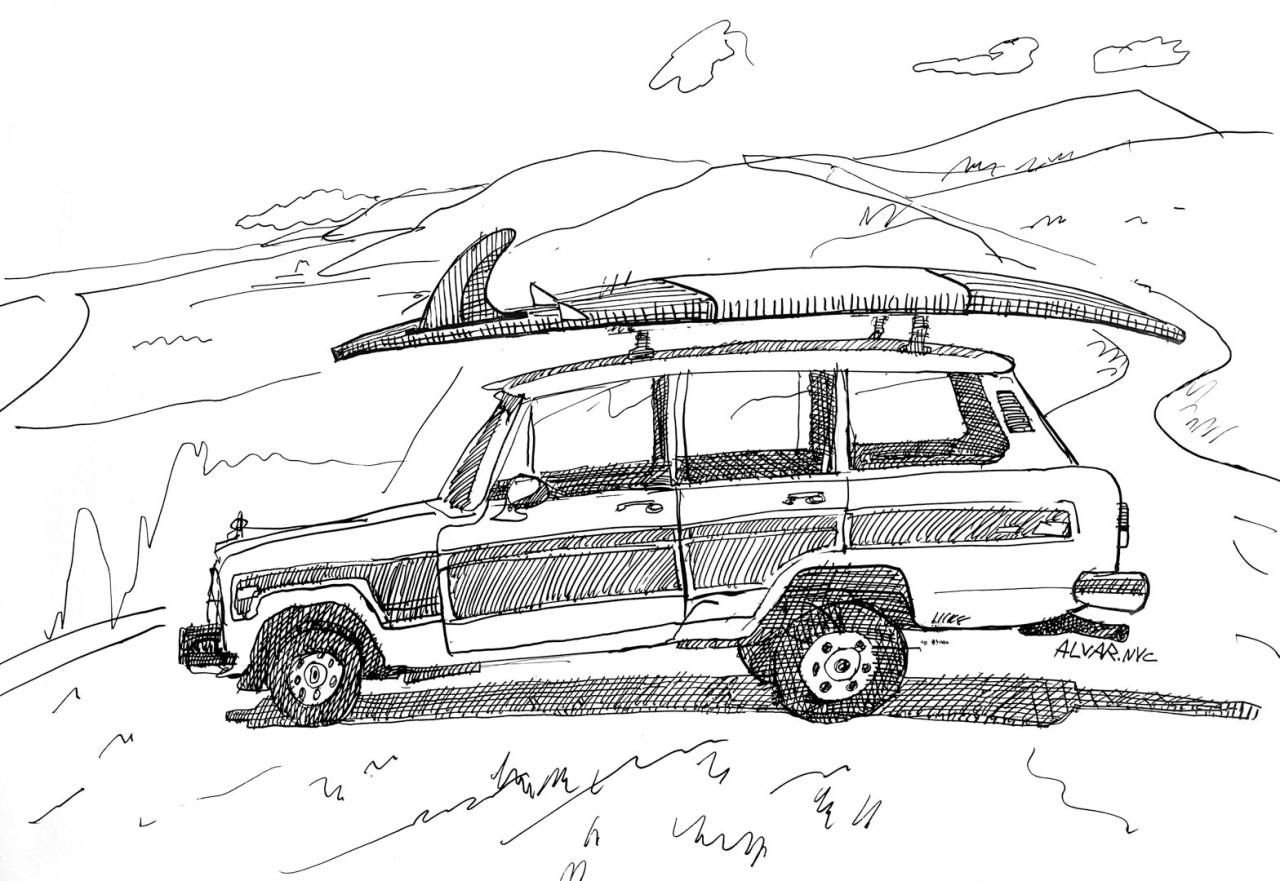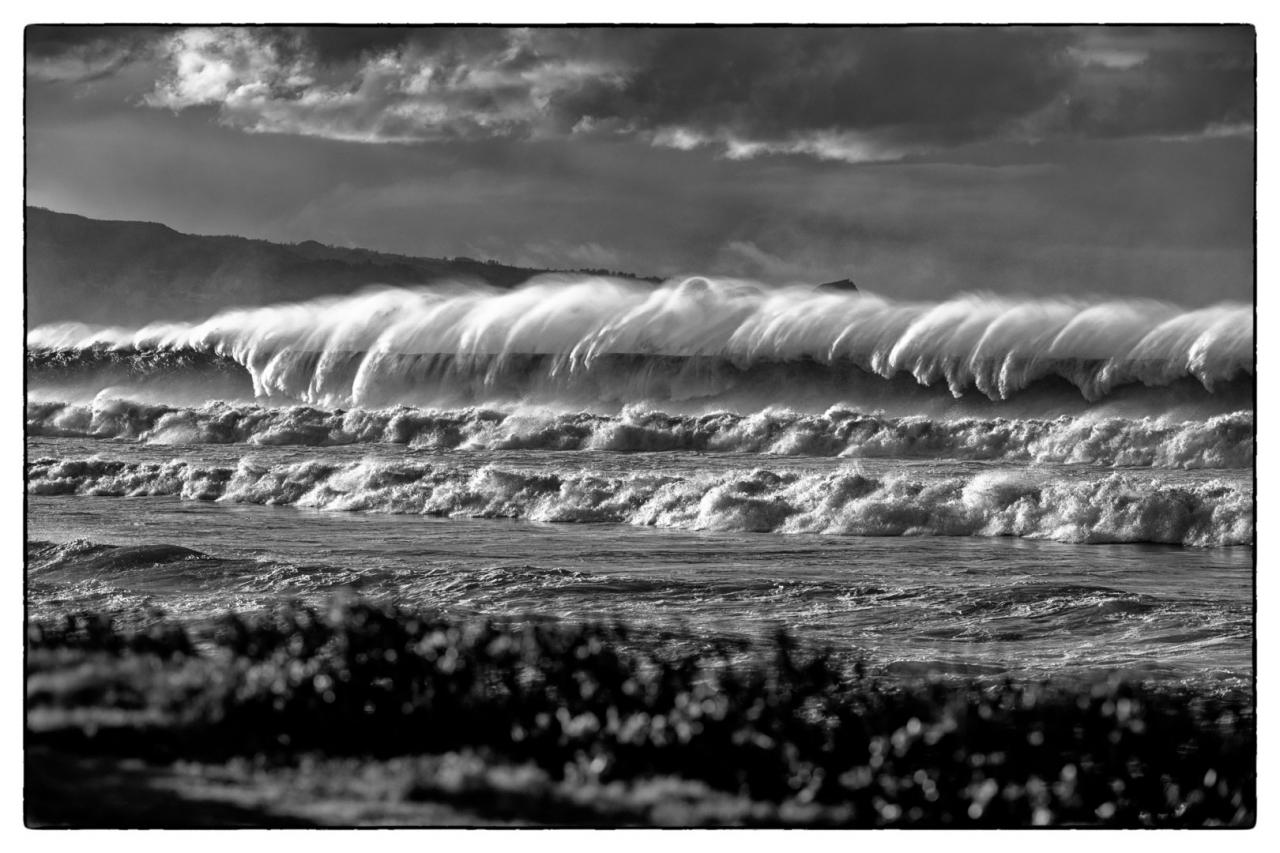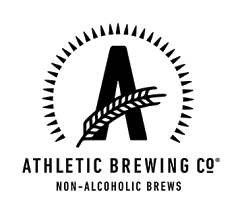“Men are born for games. Nothing else.” Cormac Mcarthy
What Does Surfing Do?
Grampa was sewing drumsticks together. He was sewing the last layer, the buckskin covering. He had magnifying glasses of different sizes mounted on the table. With his thick, plastic, bifocal glasses and the bulbous glass, Grampa looked like a mad scientist in his lab. I could still look up his nose hairs while he was sitting down. He used pliers to grip a curved needle threaded with waxed catgut. After he put them in, his stitches disappeared in the leather. The hard, brown wax reminded me of surf wax. I was talking to him about surfing. I must have recently started surfing.
“So you go surfing now,” he frowns, running a free hand through his thick, black hair, “What does surfing do?” He raised his eyebrows up above the brown and clear speckled rims of his glasses. I must have felt the looming challenge of his question. I must have felt some ideological shift. Grampa was born in the age of industry and me at the start of the age of information. Maybe he did scare me the way he scared the rest of the world. For whatever reason, I did not answer, not until he’d been dead for more than twenty years.
“Who are those for?” I asked back then, keeping him talking about the drumsticks and not about the surfing. I was pretty sure he was disappointed in the surfing, which didn’t produce anything. Grampa produced things all the time. He was a craftsman in his spare time and a topographer for a living. Grampa made maps in that office on top of the World Trade Center. Working with satellite photos, he assembled 3D topography long before computers did. I didn’t answer his question. Grampa pretended not to notice.
“These sticks are for Kev ‘n Randy.” Grampa breathed out, his nostril hairs filtered his exhale of mint drops, Marlboros and constant urgency. He blindstiched buckskin with his needle nose pliers and hook needles. I remember this breathing, not as being scary, which is what most adults said. His contained fury, we knew, was there for our protection. The same way cannons firing over your head feels like protection.
His face when, concentrating on his buckskin, would scare off anything living except Kev ‘n them.
Uncle Kev ‘n Randy were just about the coolest cats around. City Indians. Uncle Kev and Randy were always laughing together. Randy had the biggest voice, like a big trombone and he always sang with a smile on his face. They kept perfect rhythm and they always bought Grampa’s drumsticks. Uncle Kev could put emotion into his voice. He had volume and depth. Kev ‘n all them could drum with either hand and singing came naturally, like leaves on a tree. They could tell jokes and laugh while drumming and singing. They could tell stories while drumming and singing that had nothing to do with the song, they used their eyes and smiles.
Grampa liked Uncle Kev’s voice the best. I liked Randy’s. Grampa himself had a terrible singing voice
Grampa worked in New York City. I went with him sometimes. He held my hand and walked through the city, muttering swears and exhaling fiercely, a warning to the millions of adults of the contained anger. To get to his office took an hour and fifteen minutes on one train, one el, one subway, two express elevators and one local elevator. Then a walk down the hall where finally Grampa let go of my hand. His offices had floor to ceiling windows, nine hundred feet in the sky. On every flat table surface and every wall were maps of faraway places, mountains depicted as a series of oval shapes, water as layers of blue cellophane, and everything scaled something to one. It was the only place in the whole city where he let go of my hand. Fifteen years later, people flew planes straight into that office.
If Grampa had rhythm, it was not one recognizable to anyone else.
The biggest problem with living outside America is that Grampa’s drumsticks are useless. Outside of the Americas there are no groups of men who sit on chairs and all beat the same drum at the same time while singing as loud as they can and telling jokes with their eyes.
Yes. There are some things I miss about America.
“Do you miss it?” People ask me. They are asking if I miss New York City. They are thinking of the time they visited their uncle in Yonkers.
“Do you miss it?” people in Ireland ask me.
“No,” I say. “There are some people I miss.” I’m thinking of Grampa sitting in with Uncle Kev’s drum at those city pow-wows at the McBurney YMCA on West 14th Street in New York City. January was a practice month for the prize money pow-wow contests in the summer. Grampa, who made all their drumsticks, sat in to sing and drum.
“I’ll bet you don’t miss the waves,” surfers who aren’t from New York would say.
“I do,” I’d say. “When the waves in New York are good, it’s good.
Grampa’s drumsticks were fiberglass rods a little over two feet long. Both the head and handle were identical in size and feel, both having a core of felt and rubber cement. When the stick is brand new, the drummer has to choose which end will be the handle. The handle has to hold up to pressure and sweat and heat and nervous tension. The head has to handle being pounded against bonfire- tightened rawhide millions of times by large men who grew up beating drums. When Grampa delivered a fresh batch of sticks, Kev ‘n them would beat them in the air, mock drumming, testing for balance and weight. They would switch hands and repeat, sometimes mouthing a song to themselves. They would examine the stitching closely, nod their heads in stoic agreement and give Grampa some money.
Grampa made the best drumsticks in the tri-state area but was a terrible drummer. Grampa was so bad at drumming and singing that after some time he was no longer invited. There was a chair for me but not for him. A chair for the grandson who surfs, the one who painted his thumbnail black after going to see Marilyn Manson at The Limelight, but no place for the grandfather, the craftsman, the sage, the one who makes the magic sticks.
Uncle Kev didn’t correct me on the drum anymore. I could drum with both hands. I could keep the beat so well that I could feel my drumstick depress the rawhide in time with eight other drumsticks. I could feel that instant when the rawhide stretched and I became part of eight men being one.
When Grampa was at the drum, I could hear his mistakes, his stick hitting the drum a fraction too early. His singing, too, was off in tone and timing. Uncle Kev would catch my eye, and with his eyeballs flick a look towards Grampa who was getting left behind again. Grampa’s nervous attention to detail kept him in his head and being in his head drove him off beat. This trait that made perfect craftwork also made it impossible to groove like Uncle Kev and Randy.
“Grooving doesn’t think,” said Randy once, sitting at the drum with his aviators nestled into his ponytail. Randy’s face was always ready to laugh.
Grampa kept the broken drumsticks that singers gave back. He kept them in the name of science. Split buckskin, seams pounded or sweated open, collapsed felt, entire heads or handles slipping off or up the fiberglass rod. Sometimes the felt collapsed under the buckskin cover, making a lumpy handle. Sometimes the end of the fiberglass rod would start poking through, but that only happened with his early drumsticks.
For every failed stick, Grampa made his new ones better. A company out west started making drumsticks with a machine that welded plasticised rubber onto the ends of fiberglass rods. Kev ‘n them kept getting Grampa’s sticks, despite the machine sticks’ popularity with other drum groups. Still, Grampa was welcome to sit at the drum only during the winter pow-wows on West 14th Street where the stakes were low. Grampa would sit at Kevin’s drum. It terrified and humiliated him. He would sit at Kevin’s drum knowing it was the only place that he could sit at the drum. And even then, there were the eyeballs of Kev ‘n them during the songs, always telling jokes.
“What does surfing do?” Grampa asked again last week. Grampa has been dead a couple decades now, but since it’s been an abysmal surf season over here, I guess I shouldn't be surprised I’m chatting with him. “Have you figured it out yet,” Grampa asked, “what surfing does?”
“I’ve either been ignoring that question all my life or answering it, Grampa,” I said.
“Well?”
“You know how you sat in on Kevin’s drum?”
“Answering my questions with questions...”
“Sometimes it’s the best way.”
“OK… Yes. I remember sitting in on Kevin’s drum.”
“You could not keep the beat.” I said, “Your tone and your vocables (leave as is) were off, and Kev pretty much forbade you to sit in except at the Y in the winter and when you did, he was always trying to get you back on beat.”
“Is that what his other hand was doing?”
“Yes. Why did you keep drumming and singing?”
“Because there were moments where I understood the drumming. There were moments where I understood the singing. There were moments where I felt I might put everything together one day. Those moments were enough to keep going,” he said. “You know what it felt like, to sing and drum with Kev ‘n them”.
“Grampa it felt like soaring with eagles didn’t it?”
“I just did it as much as I could.”
“You did it as much as you could. Singing with Kev ‘n them does the same thing surfing does. You’ll never sing or drum like them. It’s knowing that it's there. That the world can sound like that, that the world can look like that, that keeps you wanting more of that magic.”
“You might be right,” he said.
“That’s what surfing does.”
“Hmmph,” he said, “I don’t understand.”
“Nobody does,” I say.
“Hmmph,” he said again and disappeared with an audible poof.

